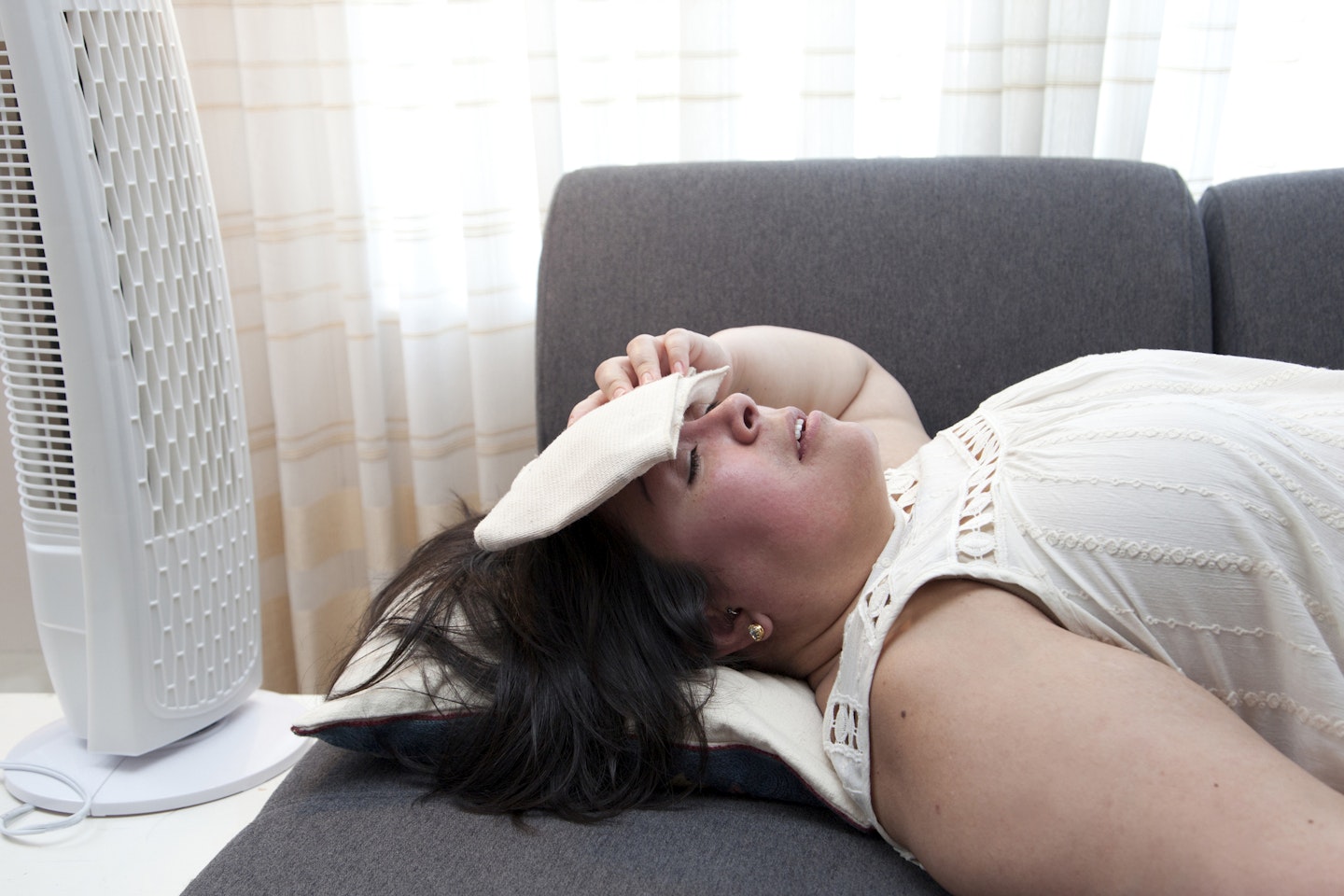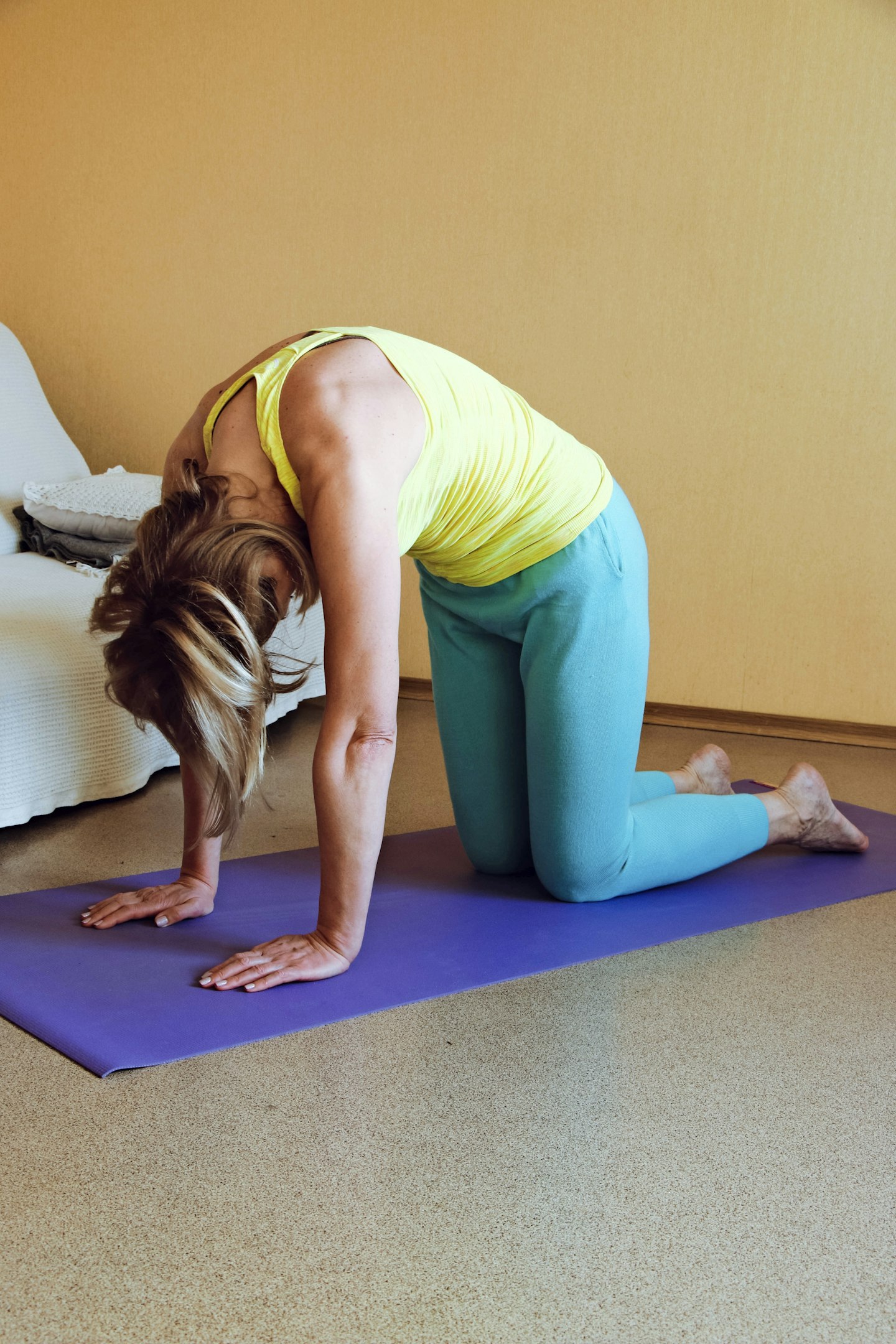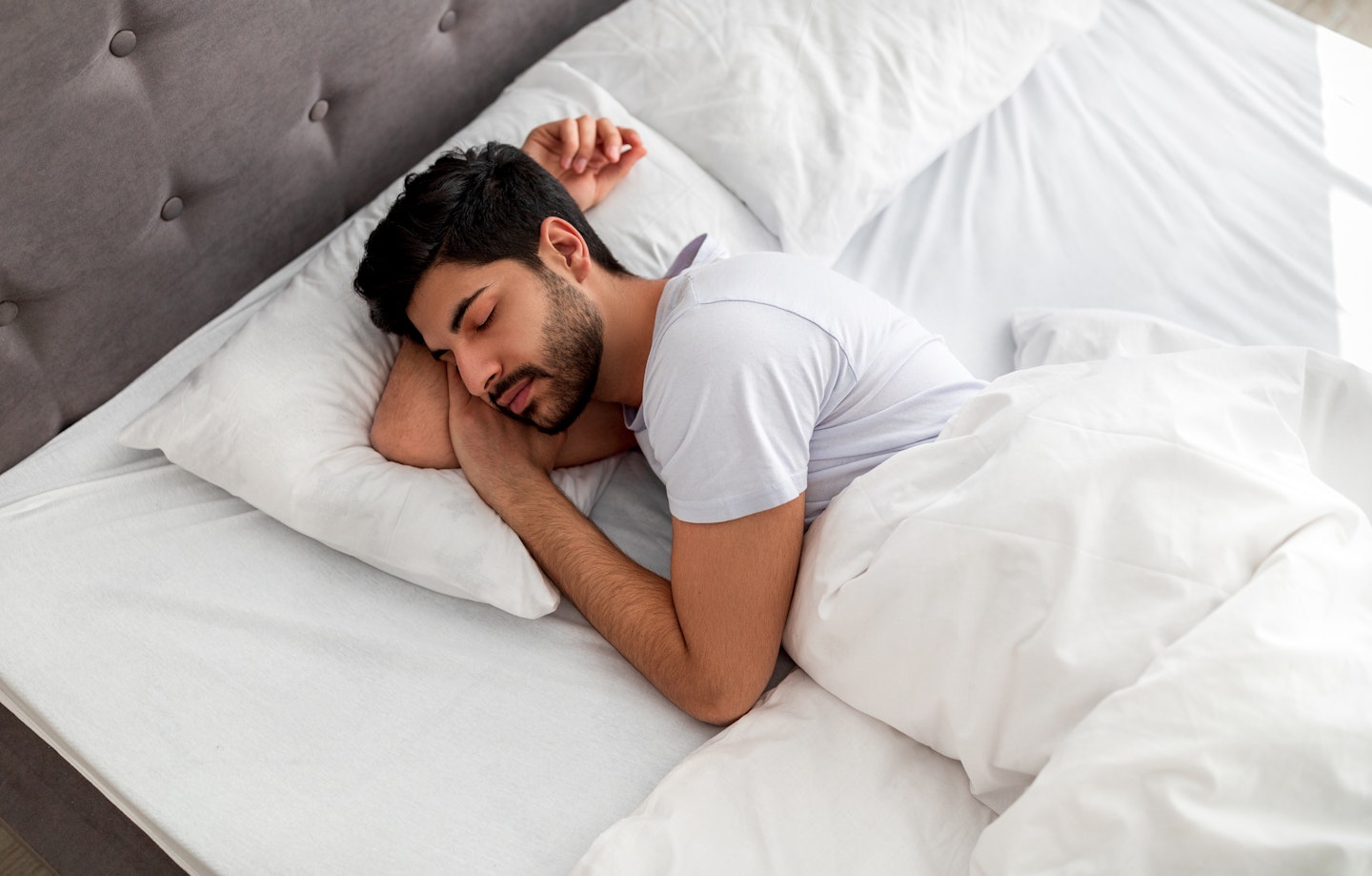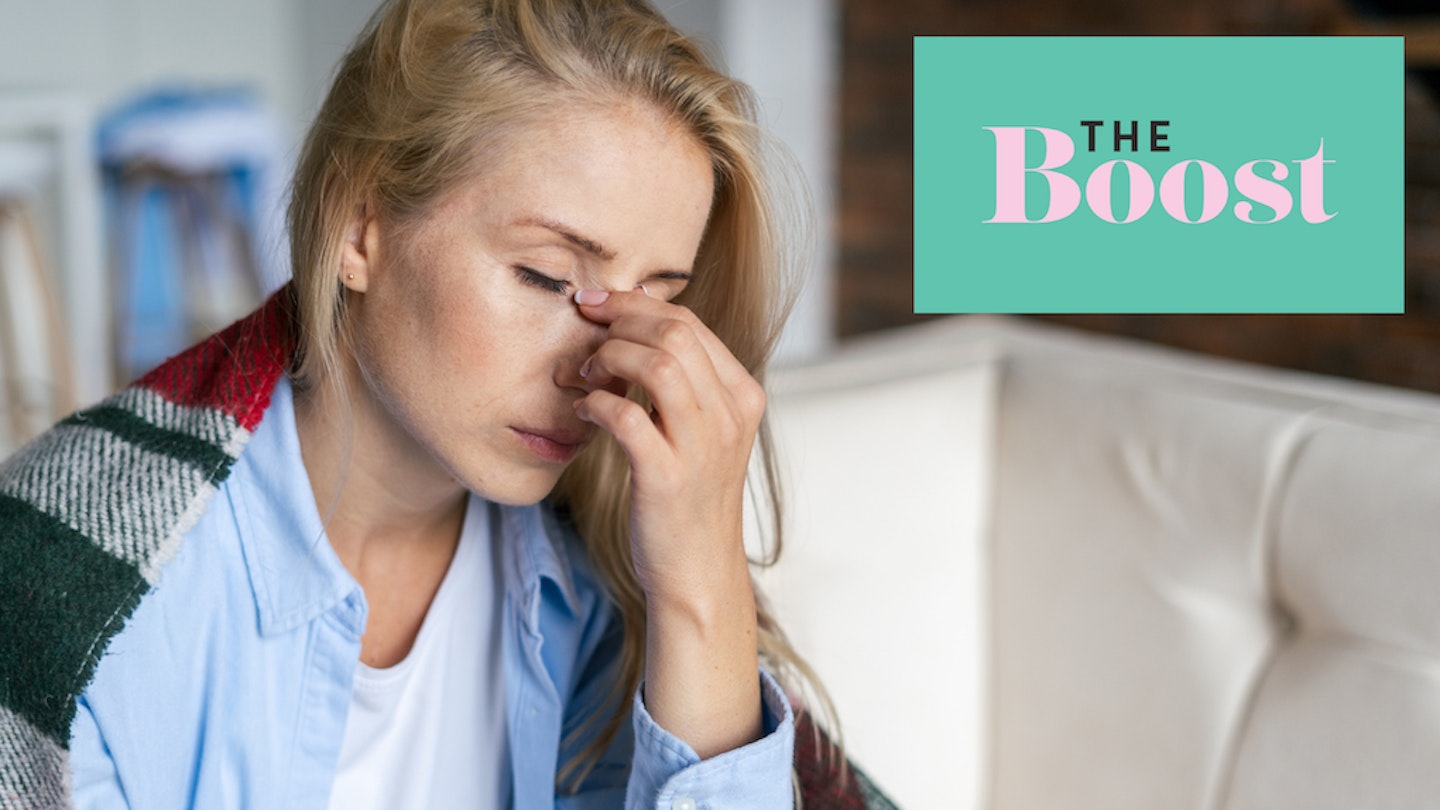Sick and tired of tiredness? Fed up with fatigue? Perhaps you're nodding off while reading this article (we won't take it personally, don't worry). We all know what's It like to feel the gruelling, lingering symptoms of tiredness (especially now we're no longer living at home in pyjamas), but it's when we can't shake those symptoms and they start affecting our day-to-day that we need to take good look at our health, surroundings and lifestyle and make some serious changes.
Sleeping in hot weather

If you're a human with a body living in the UK right now, then no doubt you've found nodding off this week a tad tricky, due to the sticky summer weather we've been enduring (that's right, we didn't say 'enjoying', we said 'enduring'). In fact, that's an understatement; we mean the seventh layer of hell we've been enduring.
Plenty of us have been struggling to sleep in these humid nights, resulting in us falling asleep at our desks the next day. It's far from ideal and terrible for our minds and bodies which function far better with routine and consistency when it comes to rest.
There are actually plenty of ways to achieve a cooler night's sleep, however, including switching from a duvet to a sheet, keeping your fluids up, keeping curtains shut all day, taking a warm bath (honestly, try it), investing in a good fan and not napping in the day (as hard as that is when you feel like a cat in the sun all afternoon).
You could also try putting you pillowcases, pants and socks in the fridge or freezer before going to bed – no really. Go do it.

Be a mood detective
Keeping a diary of your energy levels can help you become aware if you’re more tired at certain times of the day or after certain activities. “You can also use a mood diary to make notes about the food you eat, the people you’ve been around and other factors that may influence why your energy has been affected,” explains psychological therapist, Emma Kenny.
“This enables you to identify any patterns that may occur from month to month, whether it’s irregular sleep, low mood, or even gradual improvement.” Emma says when you’ve noted the days and weeks where you seem to have more get-up-and-go, you can tailor your activities accordingly. “If you find you have more energy at the weekend move your food shop or do most of your cooking then, rather than weekdays.”
Strike a pose

You don’t have to be super-flexible to do yoga or stretching, but regular practice can ease pain, boost circulation, and create a feel-good response to help beat fatigue. “When you sleep, your connective tissue sticks together and that’s why you often feel stiff in the morning,” says yoga instructor Beth Crivelli from sadhana-live.com. “Even a five-minute stretch will get the connective tissue awake, and you can do this at any time.” Beth recommends starting with simple poses like the cat-cow, a forward fold or a gentle backbend cobra. “Find any excuse to move around during the day,” she says. “We are creatures of habit and our bodies slump into whatever position we’re in, so getting up every 40 minutes is really important, even if it’s just walking around your desk.” Beth also advises doing desk stretches and head rolls to keep you awake and keep the blood flowing.
Eat vitamin-rich foods and the best vitamins for tiredness
Women in particular are prone to anaemia, which can result in extreme tiredness, and experts believe increasing your iron intake may give you more energy. “Iron-rich foods include lean red meat, eggs, fortified cereals, lentils, beans, green leafy veg, nuts and seeds,” says Closer nutritionist, Juliette Kellow. “Vitamin C helps iron to be absorbed from plant-based foods, so enjoy plenty of fruit and veg with vegetarian or vegan meals. Enjoy foods rich in B vitamins too, as these work together to release energy from food.”
Typical B-vit sources include wholegrain cereals, oats, brown rice, low-fat dairy products, lean red meat, poultry, fish, eggs, pulses, nuts, seeds, green leafy veg and yeast extract. “Eat regularly, don’t skip meals and enjoy high-fibre starchy carbs that provide long-lasting energy like porridge, wholemeal toast, wholegrain cereals or brown rice,” Juliette says. “Being dehydrated is one of the biggest causes of tiredness, so make sure you have plenty of fluid every day, especially if you’re active or the weather is hot. All fluids except alcohol count, but water is the best option.”
Unleash your inner child

Physical exercise that gets the heart rate up can increase energy, induce better sleep and make a real difference to your energy and mood levels. But this doesn’t mean you have to pound the treadmill or attend a spin class: try a simpler nostalgic form of exercise instead. “From hula-hooping to skipping, hopscotch to star jumps, kid-friendly activities are surprisingly good forms of exercise,” says Steven Virtue, Fitness Development Manager at Total Fitness. “Even if you don’t have little ones to keep entertained, channelling your inner child with school-time favourites will put a smile on your face, and help burn fat too.” What’s more, even relaxing activities such as playing with Lego and colouring books have been proven to reduce stress and anxiety levels, stimulate the mind and boost focus.
Sleep right
We know, "duh", but poor shut-eye causes tiredness, so it’s important to do everything you can to get sleep soundly. Closer therapist Emma Kenny recommends switching off from tech an hour before bed. “Research shows that having your brain constantly alerted by phone notifications or being exposed to the bright screen lights as you scroll through social media is genuinely exhausting mentally,” she says. “Switching off this constant sensory overload gives you time to relax, unwind – and most importantly, recharge – meaning you are ready to take on the challenges of your day-to-day life.”

Nutritionist Juliette Kellow recommends looking at what you’re eating and drinking too. “Avoid large meals before bedtime, as blood will be diverted away from other organs to aid the digestion process, which can cause heartburn and leave you feeling uncomfortable,” she says. “A milky drink before bed may help promote sleep as it contains tryptophan, an amino acid (protein-building block) that helps boost levels of nature’s own tranquiliser and sleeping aid – serotonin – in the brain. Avoid caffeine in the evening, as it’s a stimulant and will keep you awake. And don’t be fooled into thinking booze is the solution. Like caffeine, it’s a stimulant so while it might help you nod off, you won’t sleep as deeply or as restfully.”
